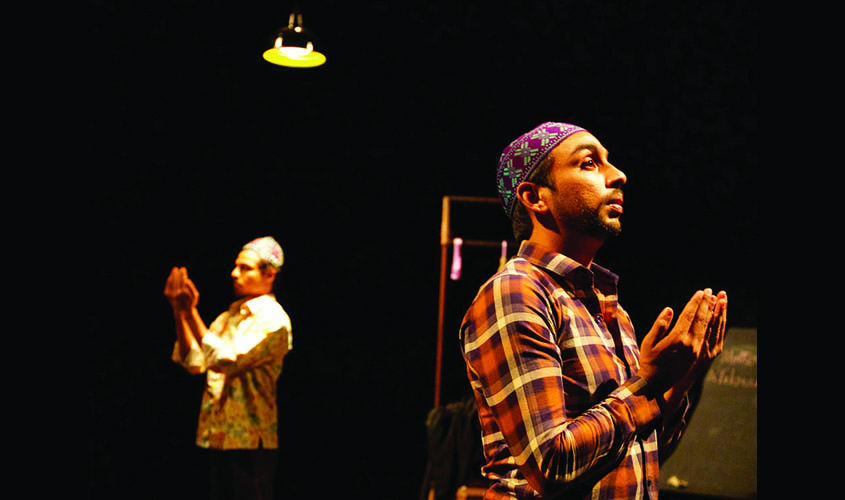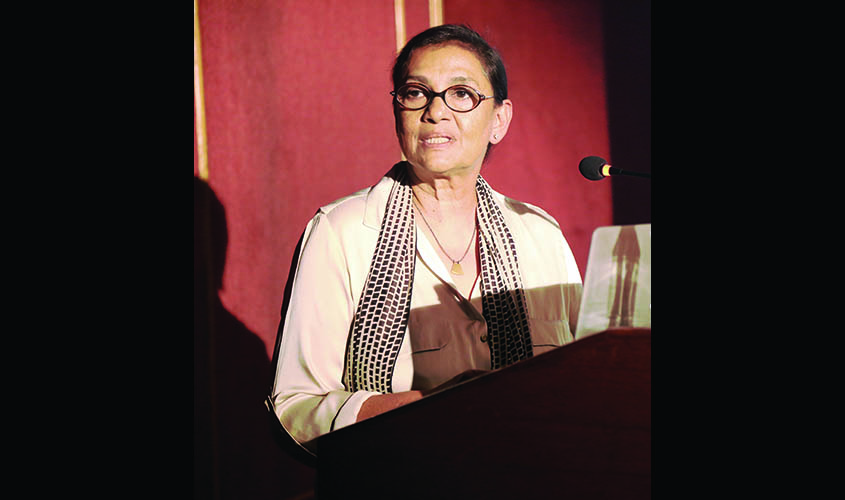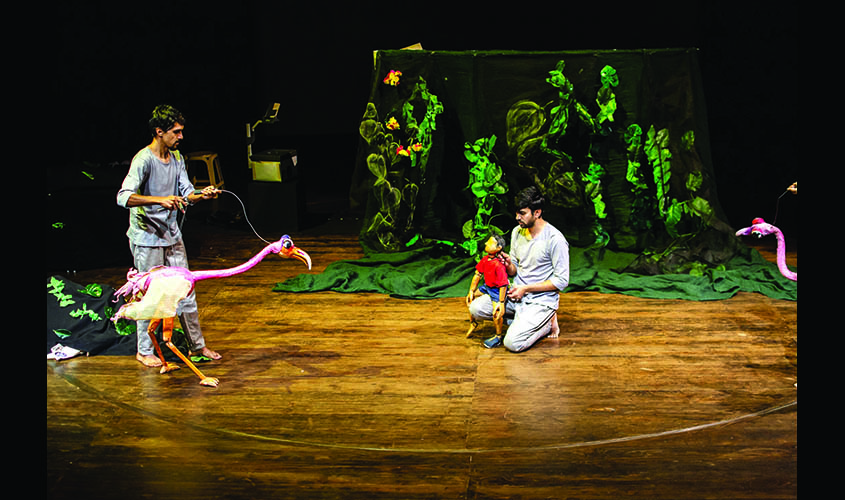In its 18th year now, the Old World Theatre Festival is one of the most prestigious theatre events in Delhi. It was first held in 2001, as an initiative of the Programmes Department of the India Habitat Centre (where it is still hosted) and has been headed by Vidyun Singh, Director Programmes, Habitat World, IHC, since its inception.
This year, the festival began on 16 August with 1…2…Tree, a play about environment conservation that makes playful use of the art of puppetry. The 10-day event, which goes on till 25 August, will end with a performance of Pitaji Please, a play by director Makrand Deshpande about a father-son duo. The overall schedule includes a run of 13 plays, as well as theatre workshops by experts of the form.
The Old World Theatre Festival, according to Vidyun Singh, is the result of a theatre culture cultivated through weekend shows that the IHC began organising almost 18 years back. She said, “The audience’s appreciation of theatrical plays over a period of time created hunger for more and varied content, and the Old World Theatre Festival was initiated as a platform to bring the best of the previous year’s plays from outside of Delhi to the capital city. We have always watched with curiosity how a binding strand or thematic unit emerges out of the selection every year once the line-up freezes, which is more often than not an articulated response to the socio-political realities of the time.”

Singh also informed us that getting sponsorship for such events these days is not as easy as it was before. However, financial stress hasn’t been able to dampen the spirit of the organisers, nor of the festival’s patrons.
“We have survived and through the years learned to stand on our own and carry on… It is satisfying to note that through all the ups and downs and despite the severe crunch on our spending capabilities, we never missed keeping our annual date. This was made possible, entirely by the ‘we will do it’ attitude and the support of the theatre fraternity,” Singh said.
When asked about how the festival has evolved over the years, Singh told us about the arrival of a “brave new tribe” of theatre practitioners, undeterred by the practical concerns of revenue models and committed to making theatre a popular yet socially relevant art form. She also talked about the growing number of dedicated viewers who believe in the power of theatre and are always willing to separate the wheat from the chaff, rejecteing the “shallow work riding on stars”.
About the role of theatre in today’s world, Singh said, “The plays that we present are rooted in narratives and metaphors ranging from the thought-provoking, inspirational, darkly humorous and rib-ticklingly funny, to the trenchant and poignant… They give us a good cause to pause. Every year’s festival brings to you a pick of the best of such work.”
She also feels that in a digitally-driven world, where a world of entertainment can be accessed at the touch of a button, events like the Old World Theatre Festival serve as important avenues for a shared cultural experience, for public interaction and exchange of ideas.

Guardian 20 also spoke with some of the directors who are staging their plays at the festival. Salim Arif has directed Gudamba, whose story revolves around an ambitious young girl, Amina (played by Lubna Salim), who gets married and believes her husband to be God’s answer to all her prayers. Though set in a traditional mileu, the play is a feast of self-deprecating humour and comic effervescence. It will be performed on 19 and 20 August.
Talking about the USP of Gudamba and its relevance to the present times, Arif said, “The Delhi audience would love the charm of the language, which is everyday Hindustani. The easy-flowing style and humourous dialogues are penned by Javed [Siddiqi] Sahab, with a poetic flavour of Urdu. The title may suggest an old-world connotation but it is actually a cultural metaphor about life and means thhodi khatti, thhodi meethi [a little sour, a little sweet]… The play offers an interesting take on adjustments in a generational gap situation. It also offers insights into how we need to give space to the younger generations so they live the way they want to.”
Vikram Phukan’s Those Left Behind Things will be performed on 22 August at the IHC’s Stein Auditorium. The play examines themes like displacement and migration. Phukan told Guardian 20, “The script of the play was written in 2014, before the Syrian refugee crisis and was inspired by a real-life event that took place in the early 2000s. It is a comment on the constantly shifting geopolitical situations the world over. It will be interesting to see whether the audiences would view this through just a topical lens or with a sense of familiarity that reminds us of our shared human condition.”

